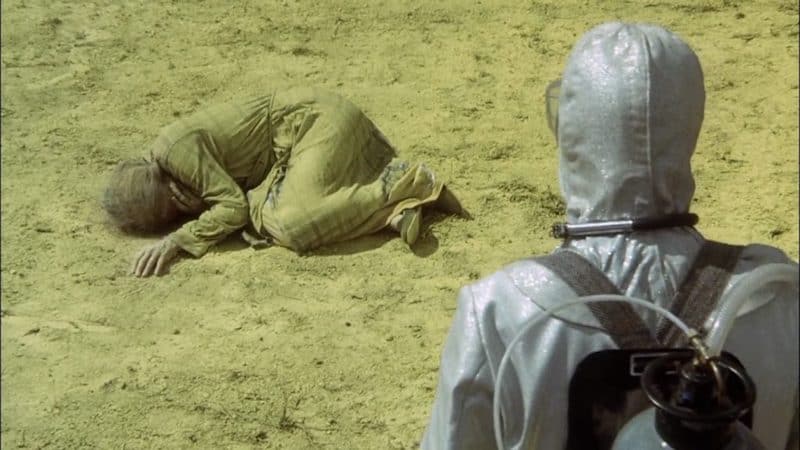Saturday, Sept. 30, 2023 | 2 a.m.
A severe infection recently led my mother-in-law to a hospital stay.
In my book of life rules, loved ones shouldn’t be left alone in a hospital, unless there’s no way around it. This is especially important if the patient has any communication struggles like hearing loss, diminished cognizance, or even the inability to communicate clearly due to treatment, like sedatives or pain relievers. Family or friends can share important information with hospital staff to fill the gaps.
This only works if doctors and nurses respect the messenger and actually listen.
Every night Mom had been in the hospital, one of her children stayed with her. Rough nights. Rough days. Attentive nurses, not so attentive nurses. Aides with good memories and follow through and some not so much.
Then, in the very early hours of Wednesday, Mom went south. Heather, Mom’s youngest, who had stayed the night with her, recognized the symptoms. Mom’s sodium had dropped too low.
It took an hour to convince a nurse to notify the doctors but only after gaslighting Heather’s explanation, saying it could also be constipation or the now-clearing infection.
Finally, by 3 a.m., a team of 15 doctors, interns, nurses, and staff stood around Mom’s bed. All of them ignored Heather’s insights even though Mom’s previous episode with low sodium had been treated at the very same hospital. Evidently, no one takes the time to read a patient’s history.
Thus began hours of needless scans, three blood draws, and ever-increasing misery for Mom.
Ten hours later, they reported Mom’s sodium was — ready? — low. Very low.
Low sodium levels are insidious. The fancy name, hyponatremia, gives it the evil sound it deserves. Our bodies need sodium to stay alive. It balances fluids, controls blood pressure and keeps nerves and muscles functioning properly, including heart muscles.
Mom hurt all over, moaning with every exhalation. Her blood pressure hit 188 over 96. She became incoherent. Visual and auditory hallucinations tormented her. Sometimes she’d mumble about “being backwards.” We still don’t know what she meant but I think Mom has been feeling like a Picasso abstract.
They finally started a saline drip, 12 hours after Heather had called for a nurse. It didn’t work. Mom was so dehydrated, her blood was too thick and her blood vessels too narrowed to carry the sodium throughout her body.
A drastic procedure was the only way out of the mess the medical team created.
They transferred her to the cardiovascular ICU where two doctors inserted a direct line to her larger blood vessels. The surgery release form my brother-in-law had to sign listed so many possible death-inducing risks, tears flowed.
ICU waiting rooms are typically thick with worry where any murmur of hope or trickle of nervous humor dissipates almost immediately, smothered by a heavy blanket of fear. This one was no different, though sparsely populated. Our little group — three siblings and me, the in-law — were lucky in that the direct line procedure took just a quick half-hour.
There are no sleepovers in ICU rooms, but Mom’s night nurse was reassuring. She ushered us back to Mom’s private room so we could see her before visiting hours ended.
Her room was warm! The nurse had realized Mom felt cold (her usual), so she turned the thermostat up to sauna. For the first time since being admitted, Mom was finally warm enough.
Watching Mom’s agitation and all the blinking machines, my mind screamed. This crisis should never have happened. If only they had listened!
The saline drip she received in the ER never appeared in her hospital room. Although we repeatedly asked about sodium levels, no one paid attention until things went dire. It’s hard to trust medical staff when something as simple as a saline drip disappears off a patient’s chart.
Who or what was the weakest link? We don’t know and we won’t find out. Hospital personnel don’t apologize. I’m sure this is because lawsuits are lurking around every corner.
Any system or process that includes people includes mistakes, but that doesn’t mean we have to be okay when things go awry. Mom’s caregivers resisted family members’ insights, and communication between departments and professionals was inadequate.
Every one of the humans responsible for Mom’s care are in what I consider the most taxing health care profession: direct patient care. I respect them for their willingness to do the work. I also realize they have their own stuff going on and none are perfect.
Humans can’t be top-notch every single hour of every single day, even when our loved one’s life is at risk. But we want them to be.
Mom is still in the ICU as I write this. Her sodium is hardly changing. She’s exhausted but able to answer questions. She’s still in pain, still moaning, and she’s still in the woods, yet we have hope she’ll fight her way to the surface.
I have to update my life rules. It’s the only option I have at this point, because my anger isn’t going to do anyone any good.
Compassion towards others, even those we hold responsible, can grow, however grudgingly and grumpily if we remember they’re just human.
Anger can ebb as acceptance increases, which is the only way to peace when no one takes the blame.
When a loved one is in the hospital — family and friends must push as hard as possible to be heard without alienating. We need the professionals to take action, so the compliment sandwich approach works.
Mom doesn’t want to go, she just wants to leave the hospital. She wants people to stop poking her and she wants the hallucinations to go away. She wants to be well.
At 86, Mom is spry, engaged, and has the mental capacity of a person half her age — when she is well.
But tomorrow could be a totally different day — and that truth is going in my book of life rules. So for now, hug your loved ones.
Leslie Kouba is a columnist for cleveland.com.















